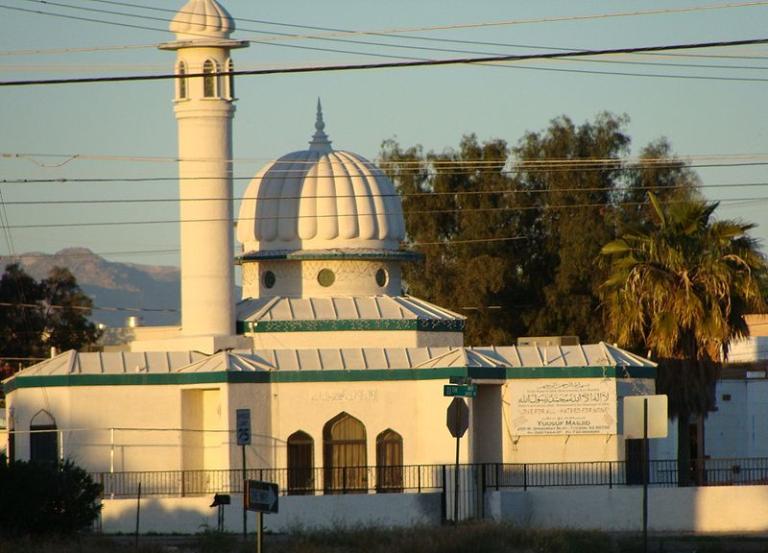
There are some parallels that are still closer. “Those that cry lies to Our signs,” declares the Qur’an, “and wax proud against them—the gates of heaven shall not be opened to them, nor shall they enter Paradise until the camel passes through the eye of the needle.”[1] Of the unrighteous, who refuse to listen to the prophets, the Qur’an says, “They have hearts, but understand not with them; they have eyes, but perceive not with them; they have ears, but they hear not with them.”[2] Only once does the Qur’an actually quote the Bible: “We wrote in the Psalms after the Torah had been given: `The righteous among My servants shall inherit the earth.”‘[3]
Sometimes the similarities are more conceptual. Thus, for example, the Qur’an believes that the earth was created in six days.[4] It is also known that a day with the Lord is equivalent to a thousand years of our time.[5] According to both the Qur’an and Alma the Younger, the heavenly bodies follow assigned courses as a sign for men and women upon the earth.[6] The Qur’an condemns those who pray, who make a show of piety, but do not give alms to the poor.[7] So does the Book of Mormon:
If ye turn away the needy, and the naked, and visit not the sick and afflicted, and impart of your substance, if ye have, to those who stand in need—I say unto you, if ye do not any of these things, behold, your prayer is vain, and availeth you nothing.[8]
Similarly, the Qur’an apparently recognizes the futility of trying to limit the words of God merely to what can be contained in one book. At a certain point, Muhammad is commanded to say: “If the sea were ink for the Words of my Lord, the sea would be spent before the Words of my Lord are spent, though We brought replenishment the like of it.” At another place, we read that “if all the trees in the earth were pens, and the sea, with seven more seas to replenish it, were ink, the writing of God’s words could never be finished.”[9]
Similar statements from the standard works of the Latter-day Saints provide a powerful argument for continuing revelation:
My works are without end, and also my words, for they never cease … [T]here is no end to my works, neither to my words.[10]
And there are also many other things which Jesus did, the which, if they should be written every one, I suppose that even the world itself could not contain the books that should be written.[11]
Some parallels are intriguing from a particularly Latter-day Saint viewpoint. The Qur’an seems, for example, to hint at the continuation of family relationships after death. “Enter Paradise,” it says, “you and your wives, walking with joy!”[12] And of “those who believe and whose posterity follows them in faith,” the God of the Qur’an says, “we shall join their posterity to them” in paradise.[13] (Remember, these phrases represent only a few scattered passages. Muslims do not, historically, seem to have made a great deal of them, doctrinally speaking. Certainly no reader should get the impression that Islam teaches anything like celestial or eternal marriage. But the passages may suggest the vestiges, at least, of true revelation, if only dimly remembered.) Perhaps even more intriguing, and certainly better represented throughout the Qur’an and throughout classical Islamic tradition, is the concept of different degrees of blessedness among the saved in paradise. Specifically the Qur’an speaks of three groups of people after death and the judgment—those of the left hand (the wicked), those of the right hand (the righteous), and, most exalted, those “brought near” unto God.[14] (The latter group must be people of quite extraordinary righteousness to be so distinguished.)
[1] 7:40. Here, the implication is that it is truly impossible for such people to enter paradise. At Matthew 19:23-26, Jesus presents a seemingly impossible condition but, nonetheless, tells his disciples: “With men this is impossible; but with God all things are possible.” It could be argued that this difference indicates a real distinction between Islam, a religion that tends to emphasize justice, and Christianity, which tends to emphasize God’s grace. This issue should not be pressed too far, however, since there is grace in Islam, and, clearly, justice in Christianity.
[2] 7:179. Compare Jeremiah 5:21; Matthew 13:13-14; Mark 8:17-18; Romans 11:8.
[3] 21:21:105 (Arberry); compare Psalms 25:13; 37:11; 37:29; Matthew 5:3.
[4] 10:3; 32:4; 57:4.
[5] 22:47; 32:5.
[6] 55:5; Alma 30:44. Compare Doctrine and Covenants 88:42-47.
[7] 107:4-7.
[8] Alma 34:28.
[9] 18:109 (Arberry); 31:27.
[10] Moses 1:4, 38.
[11] John 21:25.
[12] 43:70.
[13] 52:21 (my translation); compare 13:23; 40:8.
[14] 56:7-12.
















